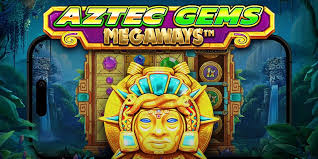
Ocean Phoenix Fishing
Many marine parks have strict regulations on fishing methods, gear, and catch limits, encouraging sustainable practices. For example, the Galápagos Islands’ marine reserve offers an exceptional opportunity to observe unique species like marine iguanas, sharks, and vibrant fish populations—all while adhering to conservation rules. Engaging with these zones enriches your understanding of marine ecology and supports efforts to preserve oceanic biodiversity https://bancadoithuong.fish/.
The Future of Ocean Phoenix Fishing Embracing Sustainability
As with all human activities affecting the environment, Ocean Phoenix Fishing faces ongoing challenges related to overfishing, pollution, and climate change. Recognizing the importance of sustainability is essential for maintaining the health of our oceans and ensuring future generations can enjoy this activity.
The Shift Toward Sustainable Fishing Practices
Innovative approaches are reshaping how we conduct Ocean Phoenix Fishing. These include catch-and-release programs, selective fishing gear that minimizes bycatch, and adherence to regulated seasons and quotas.
Technological solutions like real-time fish tracking and telemetry enable fishermen to target species more effectively, reducing unnecessary catches. Furthermore, community-based management initiatives empower local stakeholders to maintain ecological balance by respecting fish populations’ reproductive cycles and habitats.
The Role of Marine Conservation and Education
Education and advocacy play critical roles in fostering awareness about sustainable Ocean Phoenix Fishing. Initiatives that involve local communities, schools, and tourists help promote responsible practices and habitat preservation.
Marine conservation organizations advocate for policies that protect endangered species and marine ecosystems. Participating in eco-friendly tours, supporting marine reserves, and following ethical fishing guidelines all contribute to making ocean fishing an activity that respects its shared environment.
Innovations Promoting Sustainability
Emerging technologies like artificial reefs, fish farming, and blockchain traceability for seafood supplies are shaping a more sustainable future. These innovations promise to reduce the strain on wild fish populations while providing anglers with healthier, responsibly sourced options.
Encouraging the integration of renewable energy sources on fishing vessels and exploring alternative propulsion systems aim to reduce carbon footprints. As new ideas continue to develop, the future of Ocean Phoenix Fishing holds promise for a harmonious balance between adventure and conservation.
| Species | Typical Catching Method | Popular Regions | Conservation Status |
|---|---|---|---|
| Blue Marlin | Trolling, jigging | Costa Rica, Bahamas, Kenya | Vulnerable |
| Yellowfin Tuna | Purse seine, trolling | Pacific, Indian Ocean, Mediterranean | Near Threatened |
| Sailfish | Teasing, trolling | Caribbean, Gulf of Mexico | Least Concern |
| Atlantic Bluefin Tuna | Ranching, commercial fishing | Atlantic Ocean | Endangered |
| Mahi-Mahi (Dolphin Fish) | Trolling, drift fishing | Caribbean, Pacific Islands | Least Concern |
Conclusion
Ocean Phoenix Fishing encapsulates both the thrill of outdoor adventure and the importance of sustainable marine practices. Rooted deeply in cultural history yet driven by modern innovation, ocean fishing offers unparalleled opportunities to connect with nature’s power and beauty. Whether you find yourself trolling along the vibrant coasts of the Caribbean, exploring the depths of Costa Rica, or engaging with marine conservation, this activity continues to evolve responsibly. Embracing technological advancements and ecological awareness ensures that the spirit of the phoenix—renewal and resilience—remains alive in our oceans, inspiring future explorers to enjoy, protect, and celebrate our shared marine heritage.



